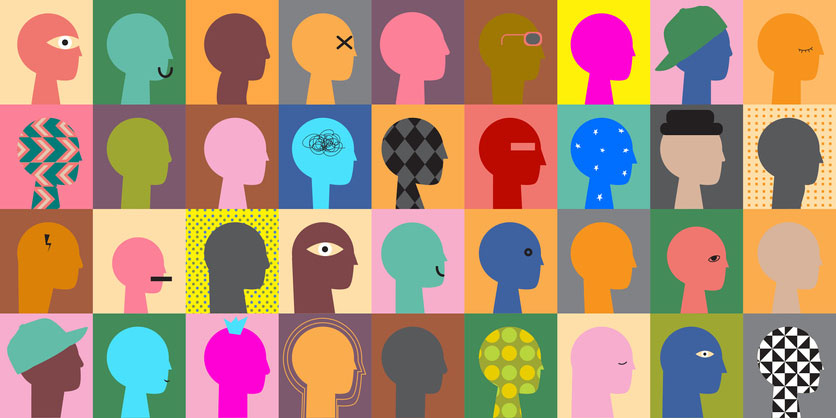Counseling Careers and Specializations: Your Complete Guide to 2026
Quick Answer: Counseling careers offer diverse specialization paths, including mental health counseling, marriage and family therapy, substance abuse counseling, and rehabilitation counseling. Most counselors need a master's degree and state licensure, with median salaries ranging from $49,710 to $60,140 depending on specialization. The field is growing 22% through 2031, much faster than average occupations.

Choosing a counseling career means joining one of the fastest-growing professions in America. With mental health awareness increasing and insurance coverage expanding, counselors play a vital role in helping individuals, couples, families, and communities navigate life's challenges.
The counseling field offers remarkable diversity. You might spend your days helping couples strengthen their relationships, guiding someone through addiction recovery, supporting elderly clients facing end-of-life concerns, or helping veterans cope with trauma. The specialization you choose will shape your daily work, the populations you serve, and your career trajectory.
This comprehensive guide explores the major counseling specializations, education requirements, licensing processes, and career outlooks to help you make an informed decision about your counseling career path.
Table of Contents
Overview of Counseling Careers

Licensed professional counselors work with individuals, families, and groups to address mental, emotional, social, and behavioral challenges. They provide therapy, assess mental health conditions, develop treatment plans, and help clients find healthier ways to cope with life's difficulties. If you're interested in starting a career in counseling, understanding the diverse roles and settings available is your first step.
Counselors serve diverse populations across multiple settings. You'll find them in private practices, hospitals, schools, community mental health centers, substance abuse facilities, correctional institutions, and government agencies. Some specialize in working with specific age groups, like children or older people, while others focus on particular issues such as addiction, grief, or relationship problems.
What Counselors Do
The day-to-day responsibilities of a counselor vary by specialization, but core duties typically include:
- Conducting initial assessments to understand client needs and diagnose conditions
- Providing individual, couples, family, or group therapy sessions
- Developing and implementing treatment plans tailored to each client
- Teaching coping strategies and healthy behavioral patterns
- Maintaining detailed clinical records and case notes
- Collaborating with other healthcare providers, social workers, and psychiatrists
- Staying current with research and best practices through continuing education
- Reporting suspected abuse or situations where clients may harm themselves or others
Career Outlook and Job Growth
The counseling profession is experiencing exceptional growth. According to the Bureau of Labor Statistics, employment for mental health counselors is projected to grow 22% between 2021 and 2031, much faster than the 5% average for all occupations. This translates to approximately 77,500 new jobs.
Several factors drive this remarkable growth:
Expanded Insurance Coverage: The Mental Health Parity and Addiction Equity Act, enforced through the Affordable Care Act, requires insurers to provide equal coverage for mental health services and medical care. This makes counseling accessible and affordable to millions more Americans.
Aging Population: Baby Boomers entering their senior years create increased demand for geriatric counseling, grief counseling, and end-of-life support.
Reduced Stigma: Growing acceptance of mental health treatment means more people are seeking help for anxiety, depression, relationship issues, and other concerns.
Veteran Services: Veterans returning from recent conflicts need support for PTSD, readjustment challenges, and service-related trauma.
Get an honest look at what being a therapist is really like from experienced mental health counselors who share the unexpected realities of the profession.
Salary Overview

Counselor salaries vary significantly based on specialization, experience, location, and work setting. As of May 2022, the Bureau of Labor Statistics reports median annual salaries for various counseling specializations:
- Substance Abuse, Behavioral, and Mental Health Counselors: $49,710
- School and Career Counselors: $60,140
- Marriage and Family Therapists: $56,570
- Rehabilitation Counselors: $40,710
- Counselors (All Other): $43,390
The top 10% of mental health counselors earn around $82,710 or more. Counselors working in specific industries command higher salaries. Religious organizations pay mental health counselors an average of $86,480, while those in business, professional, and labor organizations earn around $80,680.
Geographic location also significantly impacts earnings, with counselors in high-cost-of-living areas and states with substantial mental health funding typically earning more.
Becoming a Licensed Professional Counselor

The path to becoming a licensed professional counselor requires dedication, but it opens doors to a rewarding career helping others. While specific requirements vary by state, the journey typically follows this progression.
Education Requirements
Bachelor's Degree (4 Years): Your counseling career begins with a bachelor's degree. While you can major in psychology, counseling, social work, sociology, or related fields, many aspiring counselors choose psychology or counseling programs. These programs provide foundational knowledge in human development, abnormal psychology, research methods, and counseling theories.
During your undergraduate years, focus on courses in:
- Developmental psychology
- Abnormal psychology
- Social psychology
- Research methods and statistics
- Counseling theories and techniques
- Ethics in mental health
Master's Degree (2 Years): A master's degree is the minimum requirement for licensure as a professional counselor. Your graduate program should be accredited by the Council for Accreditation of Counseling and Related Educational Programs (CACREP) to ensure it meets professional standards and qualifies you for licensure.
Master's programs in counseling typically include:
- Advanced counseling theories and techniques
- Psychopathology and diagnosis
- Assessment and testing
- Group counseling
- Career counseling
- Multicultural counseling
- Ethics and legal issues
- Practicum experience (100+ hours)
- Internship experience (600+ hours)
Most programs require a thesis or capstone project demonstrating your research and synthesis skills.
Doctoral Degree (3-5 Years - Optional): While not required for clinical practice, a doctorate (Ph.D. or Ed.D.) opens doors to university teaching, research, program administration, and advanced clinical roles. Doctoral programs involve extensive research, comprehensive exams, and a dissertation.
Licensing Process
After completing your master's degree, you must obtain licensure to practice independently. Learn more about how to become a licensed counselor with state-specific requirements and detailed licensing steps. The process generally includes:
Supervised Clinical Experience: Most states require 2,000 to 3,000 hours of post-graduate supervised clinical work. You'll work under a licensed counselor who provides guidance, reviews your cases, and helps you develop professional competence. This typically takes two to three years of full-time work.
National Examination: You'll take a standardized professional examination, typically the National Counselor Examination (NCE) or the National Clinical Mental Health Counseling Examination (NCMHCE). These exams test your knowledge of counseling theories, ethics, assessment, and clinical practice.
State Jurisprudence Exam: Many states require an additional exam covering state-specific laws, regulations, and ethical standards for counseling practice.
Application and Fees: Submit your application with transcripts, supervised experience documentation, exam scores, and required fees to your state licensing board.
Continuing Education: After licensure, you must complete continuing education hours annually or biennially to maintain your license and stay current with best practices.
Timeline and Investment
The complete journey from bachelor's degree to licensed professional counselor typically takes 7-8 years:
- Bachelor's degree: 4 years
- Master's degree: 2 years
- Supervised clinical hours: 2-3 years
According to the National Center for Education Statistics, master's programs in counseling cost between $25,000 and $55,000 for the entire degree, though costs vary widely based on the institution and whether you attend in-state public, out-of-state, or private schools.
Important Licensing Considerations
Accreditation Matters: Always verify that your master's program is accredited by CACREP or an equivalent organization recognized by your state licensing board. Graduating from a non-accredited program may prevent you from obtaining licensure, as one counselor learned the hard way.
Rebecca Simms, a single mother near Los Angeles, pursued her dream of becoming a counselor but unknowingly enrolled in a non-accredited program. She shares: "My advice to anyone looking into ANY college program is to really dig deep when it comes to accreditation. I didn't have a clue about this type of thing; no one in my family had ever gotten past an associate's degree. I had to learn the hard way. Do yourself a big favor and do your research BEFORE you enroll in college."
State Variations: Licensing requirements, titles, and scope of practice vary significantly by state. Standard professional titles include Licensed Professional Counselor (LPC), Licensed Mental Health Counselor (LMHC), and Licensed Clinical Professional Counselor (LCPC). Research your state's specific requirements early in your educational journey.
Major Counseling Specializations
The counseling field encompasses numerous specializations, each serving unique populations and addressing specific mental health needs. Understanding these specializations helps you identify which path aligns with your interests, values, and career goals. For a comprehensive overview, explore our guide to the types of counseling available in the field.
Mental Health & Clinical Counseling

Mental health counselors represent the largest segment of the counseling profession, providing services to individuals experiencing psychological distress or mental illness. They work with clients facing anxiety, depression, trauma, grief, relationship problems, and various mental health disorders.
Scope of Practice:
Mental health counselors assess clients for mental health conditions, provide evidence-based psychotherapy, develop treatment plans, and monitor client progress. They use various therapeutic approaches, including cognitive behavioral therapy, dialectical behavior therapy, solution-focused therapy, and psychodynamic therapy.
These counselors don't just treat existing problems. They also work preventively, teaching coping skills, stress management techniques, and healthy communication patterns before issues escalate.
Mental health counselors provide evidence-based treatment for conditions including mood disorders, substance use disorders, trauma-related conditions, and personality disorders such as narcissistic personality disorder.
Work Settings:
The highest concentrations of mental health counselors work in:
- Outpatient mental health and substance abuse centers
- Individual and family services agencies
- Residential facilities for intellectual and developmental disabilities
- Hospitals (inpatient psychiatric units)
- Private practice
- Schools and universities
- Correctional facilities
Employment Outlook:
The field is experiencing explosive growth at 22% through 2031. The expanded insurance coverage under the Affordable Care Act means millions more Americans can now afford mental health services. As Secretary of Health and Human Services, Kathleen Sebelius noted, "This final rule breaks down barriers that stand in the way of treatment and recovery services for millions of Americans."
One of the most in-demand specializations in mental health counseling is depression counseling, where professionals help clients manage major depressive disorder, persistent depressive disorder, and seasonal affective disorder through evidence-based therapeutic approaches.
Salary: The median annual salary for mental health counselors is $49,710, with the top 10% earning around $82,710 or more. Fortunately, numerous funding opportunities exist through mental health counseling scholarships for aspiring counselors.
Best For: Those who want to work directly with individuals experiencing mental health challenges, who are comfortable with diagnostic work, and who want variety in their caseload and treatment approaches.
While mental health counseling offers strong career prospects, graduate education costs require careful planning. Discover scholarship opportunities for mental health counseling students that can make your education more affordable.
Substance Abuse Counseling

Substance abuse counselors help individuals overcome dependencies on alcohol, drugs, and other addictive substances. They guide clients through the recovery process, addressing not just the addiction itself but the underlying issues contributing to substance use.
What Makes This Specialization Unique:
Substance abuse counseling requires understanding that clients must genuinely want to change before recovery can begin. As the saying goes: "How many psychologists does it take to change a light bulb? Only one, but the light bulb has to want to change."
Counselors work with clients who may be at various stages of readiness. Some seek help voluntarily after recognizing the toll their addiction is taking on their lives. Others come through mandated treatment as part of probation, court orders, or family interventions.
Scope of Practice:
Substance abuse counselors:
- Assess the type and severity of substance abuse through interviews and observation
- Identify triggers that lead clients to use substances
- Develop individualized treatment plans addressing physical, psychological, and social aspects of addiction
- Provide individual and group counseling
- Teach coping strategies for avoiding triggers and managing cravings
- Help clients build support networks for long-term recovery
- Coordinate with medical professionals for medication-assisted treatment when appropriate
- Assist with repairing relationships damaged by addiction
Work Settings:
- Inpatient and outpatient substance abuse treatment centers
- Hospitals with detoxification and addiction treatment programs
- Residential rehabilitation facilities
- Correctional facilities and detention centers
- Community mental health centers
- Private practice
- Schools and universities
Career Requirements:
Some states offer certificate programs in substance abuse counseling for those with degrees in related fields. However, the most robust career path involves:
- Bachelor's degree in counseling, psychology, social work, or related field
- Master's degree in substance abuse counseling or addictions counseling
- Supervised clinical experience
- State certification or licensure
Salary: Substance abuse counselors earn a median salary of $49,710 as of 2022.
Best For: Individuals passionate about helping people overcome addiction, comfortable with the challenges of working with clients in crisis, and committed to the long-term recovery process. This specialization suits those who can balance empathy with firm boundaries and who understand that relapse is often part of recovery.
Many individuals struggling with substance abuse also experience co-occurring depression. Substance abuse counselors often work alongside depression counseling specialists to provide integrated treatment for dual diagnosis clients.
Veterans with substance abuse counseling experience often start their careers as Army Mental Health Specialists, where they work with soldiers facing addiction and co-occurring mental health disorders.
Marriage and Family Therapy

Marriage and family therapists (MFTs) view problems through a relational lens, understanding that individuals exist within systems of relationships. Rather than treating one person in isolation, MFTs examine how family dynamics, communication patterns, and relational issues contribute to mental health and behavioral problems.
Philosophical Foundation:
While other counselors might focus on an individual's internal experiences, MFTs consider the broader context. They see each person as part of a larger web of connections, each strand tugging on their mental well-being. This systemic approach recognizes that changing one person's behavior affects everyone in the family system.
Scope of Practice:
Marriage and family therapists work with:
- Married couples addressing communication issues, infidelity, financial conflicts, intimacy concerns, and parenting disagreements
- Families dealing with behavioral problems in children, blended family challenges, or significant life transitions
- Couples preparing for marriage through premarital counseling
- Families coping with chronic illness, addiction, or mental health issues affecting a family member
- Couples considering separation or navigating divorce
MFTs help clients:
- Improve communication skills
- Identify and change dysfunctional interaction patterns
- Understand how family-of-origin experiences shape current relationships
- Develop healthier problem-solving strategies
- Rebuild trust and emotional connection
- Navigate major life transitions together
Educational Requirements:
Becoming an MFT follows a distinct educational track:
- Master's degree in Marriage and Family Therapy from a COAMFTE-accredited program
- 1,500 to 3,000 hours of supervised clinical experience (varies by state)
- Passage of the Marriage and Family Therapy National Examination (MFTNE)
- State-specific ethics or jurisprudence exam
- Licensure as LMFT (Licensed Marriage and Family Therapist)
Work Settings:
- Private practice (many MFTs are self-employed)
- Community mental health centers
- Family service agencies
- Hospitals
- Religious organizations
- Employee assistance programs
Salary: Marriage and family therapists earn a median salary of $56,570 as of May 2022, with the top 10% earning around $98,700.
Effectiveness: According to the American Association of Marriage and Family Therapists, research shows that marriage and couples counseling are highly effective, with most couples reporting significant satisfaction with their therapeutic experience.
Best For: Those interested in relational dynamics, who can think systemically rather than individually, and who want to help couples and families develop healthier patterns of interaction. This specialization suits counselors who are comfortable facilitating difficult conversations and managing multiple perspectives simultaneously.
Premarital Counseling

Premarital counseling is a specialized form of couples therapy that helps engaged couples prepare for marriage by identifying and addressing potential areas of conflict before they become serious problems.
Goals and Objectives:
Premarital counseling aims to:
- Help couples examine their relationship objectively and view interactions positively
- Understand how cultural backgrounds and family-of-origin beliefs affect expectations
- Eliminate dysfunctional behaviors like control issues or unhealthy communication patterns
- Improve communication skills and emotional expression
- Identify relationship strengths to build upon
- Decrease emotional avoidance and isolation patterns
Common Issues Addressed:
- Communication styles and conflict resolution approaches
- Financial management and spending philosophies
- Expectations about roles, responsibilities, and what constitutes a successful marriage
- Personal values and long-term goals
- Family planning and parenting philosophies
- Sexual intimacy and expectations
- How to handle relationships with in-laws and extended family
Benefits:
Research shows premarital counseling provides significant advantages:
- Builds conflict resolution skills before problems escalate
- Identifies and addresses differing expectations early
- Helps couples avoid toxic resentment that erodes relationships
- Reduces fears about marriage longevity
- Provides tools for maintaining a healthy relationship long-term
Best For: MFTs or licensed professional counselors who enjoy preventative work and helping couples establish strong foundations before challenges arise.
School and Career Counseling
School and career counselors help students and adults navigate educational choices, career transitions, and professional development. They work in academic institutions or career centers, providing guidance that shapes life trajectories.
School Counselors work with students from elementary through high school, addressing:
- Academic planning and course selection
- College and career readiness
- Social and emotional development
- Behavioral issues and peer relationships
- Family problems affecting school performance
- Crisis intervention
Learn more about school counseling careers and the unique opportunities in educational settings.
Career Counselors assist adults with:
- Career exploration and assessment
- Job search strategies and resume development
- Career transitions and changes
- Work-life balance issues
- Vocational rehabilitation
- Retirement planning
Discover the path to becoming a career counselor and helping people find fulfilling work.
Salary: School and career counselors earn a median salary of $60,140, the highest among counseling specializations tracked by the BLS.
Best For: Those interested in educational systems, who enjoy helping people identify their strengths and potential, and who want to work in school settings or career development organizations.
Rehabilitation Counseling

Rehabilitation counselors assist individuals with physical, mental, emotional, or developmental disabilities to live independently and achieve their life goals. They take a holistic approach, addressing personal, social, and vocational aspects of their clients' lives.
Who Are the Clients?
Rehabilitation counselors serve individuals facing challenges from:
- Congenital disabilities and developmental disabilities
- Illness or disease (chronic conditions, terminal illness)
- Accidents causing physical injuries
- Mental illness or cognitive impairments
- Stress and trauma
- Sensory impairments (blindness, deafness)
- Substance abuse recovery
Comprehensive Approach:
Rehabilitation counselors consider the whole person:
- Physical abilities and limitations
- Mental strengths and challenges
- Financial resources and constraints
- Available support systems (family, friends, community)
- Eligibility for federal, state, and local assistance programs
- Ability to function independently in the community
- Potential for developing needed skills and coping mechanisms
Multiple Roles:
Rehabilitation counselors serve as:
Counselor: Providing therapy for psychological issues stemming from or contributing to the disability, helping clients cope with limitations, and addressing mental health concerns.
Evaluator: Assessing the nature and extent of disabilities, determining functional capacities, and evaluating whether clients are operating at full potential or need additional services.
Treatment Developer: Creating individualized treatment plans based on clients' unique needs, values, strengths, and limitations.
Facilitator: Coordinating with doctors, therapists, psychologists, social workers, and family members, scheduling appointments, arranging transportation, and connecting clients with community resources.
Advocate: Working toward greater awareness and support for people with disabilities, encouraging community participation and inclusion.
Work Settings:
- Vocational rehabilitation services
- Hospitals and medical centers
- Mental health and substance abuse facilities
- Residential facilities for developmental disabilities
- Private practice
- State and local government programs
- Schools (working with students with special needs)
- Non-profit organizations
Employment Outlook: Rehabilitation counseling is projected to grow 11% through 2031, more than double the average for all occupations.
Salary: Rehabilitation counselors earn a median salary of $40,710, with the highest-paying employers being insurance-related companies ($75,780) and specialty hospitals ($68,200).
Best For: Those with patience, empathy, and strong advocacy skills who want to help people overcome barriers and achieve maximum independence. This specialization suits counselors who are comfortable with case management and interdisciplinary collaboration.
Community Counseling

Community counselors address widespread problems affecting entire communities rather than just individuals. They work at both the individual and systemic levels to solve social and psychological issues that impact community health.
The Snowball Effect:
Community problems often start small, affecting just a handful of people, but can quickly grow out of control. Poverty, cultural prejudice, substance abuse, and psychological issues spread through communities like a snowball rolling down a mountain, gathering size and momentum. Community counselors intervene before problems become insurmountable.
What Community Counselors Do:
They work on multiple levels:
Individual Level: Providing therapy and counseling to community members dealing with specific challenges, while identifying root causes that extend beyond the individual.
Community Level: Collaborating with community leaders to develop outreach programs, make mental health services more accessible, and address systemic issues causing widespread problems.
Crisis Response: After disasters or traumatic events (floods, tornadoes, hurricanes, wildfires, terrorist attacks), community counselors help populations cope with collective trauma, loss, and anxiety. They provide both individual and group counseling while assisting communities to unite and rebuild.
Prevention Focus: Creating programs that prevent problems from developing, such as substance abuse prevention initiatives, anti-violence campaigns, and mental health awareness efforts.
Work Settings:
- Community mental health centers
- Social service organizations
- Government agencies (local, state, federal)
- Schools and universities
- Hospitals
- Non-profit organizations
Salary: Community counselors, classified under mental health counselors, earn a median salary of $49,710, with top earners in the field making upward of $83,600.
Best For: Those who think systematically, enjoy public health approaches, and want to create change at the population level. This specialization suits counselors who are comfortable with program development, community organizing, and working with diverse stakeholders.
Community counselors working with diverse populations benefit from understanding cultural competency frameworks developed by cultural psychologists who research effective cross-cultural communication and culturally responsive interventions.
Pastoral Counseling

Pastoral counseling integrates faith and spirituality with psychological principles to help people heal. For many individuals, seeking support within their religious community makes more sense than traditional secular counseling, and pastoral counselors provide this faith-centered approach.
Unique Aspects:
What sets pastoral counseling apart is the pre-existing relationship and shared faith community between counselor and client. To an active church member, this prior relationship often makes pastoral counseling more comfortable, especially for those who prefer a spiritually based approach aligned with their beliefs.
Pastoral counselors seamlessly integrate spiritual values with the scientific aspects of psychotherapy. While they invite religious principles into the counseling session, they must still abide by psychotherapeutic guidelines to provide the best care.
Historical Foundation:
Religious groups have always offered spiritual support, but pastoral counseling as a profession developed during the 20th century. Following World War I, the need for therapeutic support increased drastically, and many individuals turned to the church rather than the medical community.
The integration of psychotherapy and religion became evident in the 1930s when Norman Vincent Peale, the famed minister, and Smiley Blanton, a noted psychoanalyst, collaborated to form the American Foundation of Religion and Psychiatry in New York City.
Scope of Practice:
Pastoral counseling provides support by meeting these goals:
- Enlivening the mind
- Revitalizing the body
- Deepening the individual's relationship with nature and surroundings
- Supporting personal growth within chosen social systems (family, career)
- Deepening relationship with God or a higher power
Pastoral counselors help with the same issues people traditionally seek counseling for: anxiety, depression, relationship problems, grief from losing a loved one, terminal illness, and crises of faith. They may benefit from talking with both a theologian and a mental health counselor.
Therapeutic Modes:
Pastoral counselors should become familiar with:
- Behavioral therapy
- Gestalt psychology (emphasis on human potential)
- Relational approaches
- Spiritual growth (Carl Jung's principles, collective unconscious, extraversion/introversion)
Holistic counselors who want to explicitly integrate spiritual dimensions into their practice may be interested in spiritual psychology, which formally addresses clients' faith and existential concerns.
Work Settings:
While typically associated with churches, pastoral counselors practice in:
- Churches and religious organizations
- Hospitals (both inpatient and outpatient)
- Mental health counseling facilities
- Addiction and rehabilitation facilities
- Private practice
Length of Treatment:
Treatment can be short-term (such as grief counseling following the loss of a loved one or coping with a terminal illness diagnosis) or long-term (providing ongoing assistance as individuals overcome obstacles or transition into dealing with personal problems).
Credentialing Requirements:
To become a pastoral counselor, you must:
- Be ordained as a minister or clergy member, ensuring a proper background in church theology
- Possess counseling credentials (bachelor's or master's degree in counseling or related field)
- Complete Clinical Pastoral Education (CPE) through programs accredited by the Association for Clinical Pastoral Education (ACPE). Additional credentialing may come through professional organizations in the field of pastoral counseling.
When It's the Right Option:
Pastoral counseling is ideal for anyone looking for a faith-based perspective when dealing with a mental health issue. It may be best suited for individuals who:
- Are not entirely comfortable in a traditional or secular counseling setting
- Are facing end-of-life issues and want to discuss faith-based perspectives on death and dying
- Are you coping with the loss of a loved one and wish to understand faith-based existential concepts
- Are concerned about the connection between secular counseling and their personal religious beliefs
- Have had negative experiences with other methods of psychotherapy and want to find support through the church
Best For: Ordained ministers or clergy members who also have counseling training and want to provide therapeutic services within their faith community. This specialization suits those who can integrate theological knowledge with psychological expertise. Learn more about pastoral counseling careers and the path to becoming a pastoral counselor.
Geriatric Counseling

Geriatric counselors specialize in working with elderly populations, addressing the unique mental health challenges associated with aging, loss, chronic illness, and end-of-life concerns.
Why Growing Demand?
Several factors drive exceptional growth in geriatric counseling:
The Baby Boomer Generation: Americans born between 1946 and 1964 are entering their elderly years in massive numbers. In 2020, about 56 million Americans (17% of the population) were 65 or older. By 2034, there will be approximately 77 million elderly persons, making one in five Americans a senior citizen.
New Health Care Laws: The Affordable Care Act's enforcement of mental health parity means geriatric counseling, which used to be cost-prohibitive, is now covered by insurance. One family member explains, "I cannot tell you how excited I am about the new laws about insurance companies having to cover counseling. My grandmother was going through problems at her housing complex, and I went to take her to a counselor who specialized in older people. I couldn't afford to pay $90 even once a month, never mind once a week! Now I can take he,r and her insurance will have to pay!"
Veteran Demand: Vietnam veterans (average age 22 during service) are now 62-72 years old. Many have PTSD, Agent Orange exposure, and other war-related issues requiring specialized counseling.
Common Issues Addressed:
- Depression and anxiety related to aging
- Grief and loss (death of spouse, friends, independence)
- Chronic illness and pain management
- End-of-life concerns and fears
- Cognitive decline and dementia-related challenges
- Isolation and loneliness
- Loss of purpose after retirement
- Relationship changes with adult children
Work Settings:
- Private practice
- Hospitals and medical centers
- Assisted living and nursing facilities
- Community mental health centers
- Home health agencies
- Veterans Affairs facilities
- Government aging services programs
Best For: Those with patience, empathy, and comfort discussing end-of-life issues. This specialization suits counselors who respect the wisdom and life experience of older adults and who can help them maintain dignity and quality of life. Explore geriatric counseling careers to learn more about this growing specialization.
Holistic Counseling

Holistic counseling integrates physical, spiritual, and psychological aspects of healing, viewing clients as whole beings rather than focusing solely on mental symptoms. Recent trends show increasing use of complementary and alternative approaches to mental health, even within the U.S. military.
What Makes It Different:
Traditional counseling focuses primarily on the psychological ramifications of issues and behaviors. Holistic counseling assesses and treats from physical, spiritual, and psychological contexts.
Three-Dimensional Approach:
Physical Aspects: Holistic counselors evaluate how the physical body is involved and affected by presenting symptoms, aiming to facilitate physical well-being. They may become specialized in:
- Reiki-based treatment
- Yoga instruction
- Energy healing
- Chiropractic techniques
- Massage therapies
- Acupuncture/acupressure
Many offer clients assistance with dietary issues, weight management, vitamin supplementation, exercise, and proactive health measures.
Spiritual Components: The holistic counselor acknowledges that the human spirit is intricately involved in healing the total person: mind, body, and soul. Some counselors have denominational preferences, while others incorporate spirituality in a generalized way or let the client's personal orientation guide the spiritual work.
Psychological Components: Holistic counselors remain cognizant of mental conditions, using skills and knowledge acquired through academia and internships. They don't abandon historically employed methods; they integrate them with supplemental observations based on physiological and spiritual assessments.
Therapeutic Modes:
Holistic counselors should become familiar with:
- Behavioral therapy
- Gestalt psychology (emphasis on human potential)
- Relational approaches
- Spiritual growth (Carl Jung's principles)
Important Distinction:
There's a difference between a licensed counselor who takes a holistic approach and someone who "counsels" or "coaches" clients using holistic techniques. Licensed holistic counselors have:
- Graduated from accredited colleges with a minimum master's degree in counseling/therapy/social work
- Met all internship and licensing requirements in their state
- Chosen to incorporate holistic treatment methods after licensure
- Practice under their state licenses
Work Settings:
Holistic counselors typically work in:
- Private practice
- Integrative health centers
- Wellness clinics
- Hospitals with integrative medicine programs
Philosophy:
As Licensed Marriage and Family Therapist Marianne Clyde explains: "The most important thing I tell clients as soon as they come to me is that, 'There is nothing wrong with you. You are already whole, perfect, and complete. There are just a few little pebbles stopping the flow in your life. Those pebbles (Ok…some are boulders.) are beliefs and behaviors that might have been true at some time in your life, but are no longer true and are not working for you. It's our job to figure out what they are, change them, and get you unstuck.'"
Best For: Those interested in integrative approaches, who have or want to pursue additional training in complementary healing modalities, and who view healing as encompassing more than just psychological intervention.
Specialized Populations & Issues
Beyond the major specializations, counselors may focus on specific populations or issues:
Multicultural Counseling: Working with diverse populations and addressing cultural factors in mental health
Domestic Violence Counseling: Supporting survivors of abuse and helping them develop safety plans and rebuild their lives
Child Abuse Counseling: Learn more about becoming a child abuse counselor and working with children and families affected by abuse. Students interested in counseling children should understand the distinction between counseling roles and doctoral-level positions like child psychologists, who complete 8-10 years of education including extensive clinical training and supervised practice hours.
Depression Counseling: Specializing in evidence-based treatments for depressive disorders
Suicide Intervention: Crisis counseling for individuals experiencing suicidal ideation
Transformational Counseling: Helping clients make significant life changes and personal growth
Veterans Counseling: Explore veterans counseling careers addressing PTSD, readjustment challenges, and service-related trauma
Spiritual Counseling: Discover spiritual counseling careers that integrate spirituality and personal growth into therapeutic practice
Many counselors develop niche practices combining specializations. For example, you might focus on geriatric depression, LGBTQ+ couples therapy, or adolescent substance abuse. Finding your niche can help you build expertise and attract specific client populations.
Counselor vs Therapist: Understanding the Difference

If you're researching counseling careers, you've probably encountered the terms "counselor" and "therapist" used seemingly interchangeably. While both professionals help people with mental health challenges, they represent different traditions in mental health treatment with distinct philosophies and training paths.
Similarities Between Counselors and Therapists
Both counselors and therapists:
- Draw on the same body of psychological knowledge for diagnosis and treatment
- Use similar therapy techniques (CBT, DBT, psychotherapy, interpersonal therapy)
- Treat many of the same conditions (depression, anxiety, addiction, relationship problems)
- Need master's degrees and state licensure
- Provide empathy, compassion, and practical solutions
- Work in similar settings (private practice, hospitals, clinics, agencies)
For clients seeking treatment, the differences may seem minimal. Both professionals offer quality mental health care. But for aspiring mental health professionals, understanding the distinction is crucial for their education and career path.
The Real Difference: Philosophy and Approach
The fundamental difference lies in how each profession conceptualizes and approaches mental health:
Counselors take a practical, functional approach. They view mental health issues as problems to be solved for each individual. Counselors focus on problem-solving by addressing specific issues that prevent clients from achieving their goals and seeking straightforward treatments that directly deal with those issues.
Therapists take a systemic, relational approach. They see individuals as part of a larger web of relationships and social connections. Therapists trace problems through that web of connections, examining how family dynamics, relationships, and social contexts affect mental well-being, then focus on treatments from a holistic perspective.
These philosophical differences emerged from each profession's historical roots in the early 20th century and continue to shape how practitioners are trained and how they work with clients.
Educational Paths
For Counselors:
- Master's in counseling from a CACREP-accredited program
- Coursework emphasizing individual therapy, career development, group counseling, and psychological development across the lifecycle
- 2,000-3,000 hours of supervised clinical experience
- National Counselor Examination (NCE) or National Clinical Mental Health Counseling Examination (NCMHCE)
- Licensure as LPC (Licensed Professional Counselor) or LMHC (Licensed Mental Health Counselor)
For Therapists (MFTs):
- Master's in Marriage and Family Therapy from a COAMFTE-accredited program
- Coursework emphasizing clinical treatment for individuals, couples, and families with strong cultural competency and biopsychosocial perspectives
- 1,500-3,000 hours of supervised experience
- Marriage and Family Therapy National Examination (MFTNE)
- Licensure as LMFT (Licensed Marriage and Family Therapist)
Both types of programs cost between $25,000 and $55,000 and take approximately two years to complete, according to National Center for Education Statistics data.
Salary Comparison
According to the Bureau of Labor Statistics (May 2022 data), salaries are comparable:
Counselors:
- Substance abuse, behavioral, and mental health counselors: $49,710 median
- School, guidance, and career counselors: $60,140 median
- Counselors (all other): $43,390 median
Therapists:
- Marriage and family therapists: $56,570 median
- Occupational therapists: $93,180 median
- Recreational therapists: $51,330 median
- Therapists (all other): $60,800 median
Scope of Practice: Can Counselors Diagnose?
This depends entirely on your state. According to the National Conference of State Legislatures:
- 32 states specifically authorize licensed professional counselors to diagnose mental illnesses
- At least two states specifically prevent diagnosis by LPCs
- In the remaining states, diagnostic authority isn't explicitly addressed by law
Always check your state's specific regulations regarding the scope of practice for counselors versus therapists.
Choosing Your Path
For clients, the choice between a counselor and a therapist might never matter. Both offer skilled, compassionate care.
For future professionals, consider:
- Choose counseling if you're drawn to practical problem-solving, want to work with individuals addressing specific life challenges, and prefer a broader range of potential specializations (career counseling, school counseling, substance abuse, rehabilitation).
- Choose therapy (MFT) if you're fascinated by relationship dynamics, think systemically about problems, and want to specialize in couples and family work.
Either path leads to a rewarding career helping people live healthier, happier lives.

Selecting a counseling specialization is one of the most important decisions you'll make in your career journey. The specialization you choose shapes your daily work, the populations you serve, your work environment, and your earning potential.
Consider Your Interests and Values
Start by reflecting on what draws you to counseling:
What issues resonate with you? Do you feel passionate about helping people overcome addiction? Supporting relationships? Working with trauma survivors? Helping people with disabilities achieve independence?
What age groups do you want to serve? Some counselors love working with children and adolescents, while others prefer adults or elderly populations. Your preference will guide you toward school counseling, geriatric specializations, or general adult mental health.
What role does spirituality play? If faith is central to your life, pastoral counseling might combine your calling with your professional skills. If you're interested in alternative healing, holistic counseling integrates complementary approaches.
Population Preferences
Think about who you want to help:
- Individuals working through personal challenges
- Couples strengthening or repairing relationships
- Families navigating dysfunction or transitions
- Communities recovering from collective trauma
- Veterans coping with service-related issues
- People with disabilities seeking independence
Work Environment Preferences
Your specialization significantly impacts where you'll work:
Private Practice: Marriage and family therapists, pastoral counselors, and holistic counselors often build private practices. This offers autonomy and flexibility but requires business acumen and marketing skills.
Institutional Settings: Mental health counselors, substance abuse counselors, and rehabilitation counselors frequently work in hospitals, treatment centers, or government agencies. These settings provide structure, benefits, and built-in client referrals.
Schools and Universities: School counselors and career counselors work in educational settings with different schedules (following the academic calendar) and populations.
Community Organizations: Community counselors work in social service agencies, non-profits, and government programs focused on population-level interventions.
Geographic Considerations
Licensing requirements vary significantly by state. Research your state's specific requirements for your chosen specialization early in your educational planning. If you plan to move, consider which states have reciprocity agreements for license portability.
Some specializations have a stronger demand in certain regions. Rural areas may have a shortage of mental health counselors, while urban areas may offer more opportunities for niche specializations.
Income Expectations
While passion should drive your choice, understanding salary realities helps with planning:
Higher-paying specializations:
- School and career counselors: $60,140 median
- Marriage and family therapists: $56,570 median
Mid-range specializations:
- Mental health and substance abuse counselors: $49,710 median
- Counselors (all other): $43,390 median
Lower-paying specializations:
- Rehabilitation counselors: $40,710 median
Remember that top performers in any specialization can earn significantly more. The top 10% of mental health counselors earn around $82,710, and marriage and family therapists in the top tier earn about $98,700.
Specific work settings pay more regardless of specialization. Religious organizations, business/professional organizations, and insurance companies typically offer higher salaries than government agencies or non-profit organizations.
Can You Change Specializations?
Many counselors shift focus throughout their careers. You might start in general mental health counseling, then pursue additional training in trauma therapy or addiction counseling. Some counselors combine specializations, such as geriatric mental health or LGBTQ+ couples therapy.
The foundational master's degree in counseling provides flexibility. Additional certifications, continuing education, and supervised experience in new areas can open doors to different specializations without returning to graduate school.
Making Your Decision
Mitchell D. Thomas, who earned a B.A. in psychology, shares this perspective: "My bachelor's in psychology did not automatically make me a candidate for high-paying jobs in the mental health industry. Once I realized I would need at least a master's to do what I want to, I decided to get a sales job where I could get paid according to sales volume. I never thought I'd like a job like this, but I do. I am probably going to go back to school eventually—I know I will need to do that to apply for jobs I want."
His experience highlights the importance of researching career paths thoroughly before committing to a specific degree program. Talk to practicing counselors in various specializations. Shadow professionals. Volunteer in different settings. The more exposure you get, the more precise your path becomes.
Career Advancement and Salary Growth
Once you're established in your counseling career, several strategies can help you increase your earning potential and expand your professional opportunities.
Continuing Education
Education doesn't stop with licensure. Continuing education is required to maintain your license, but strategic choices can also position you for advancement:
- Pursue certifications in specialized treatment modalities (EMDR, DBT, play therapy)
- Attend workshops and conferences to stay current with research and best practices
- Take courses in emerging areas like telehealth or trauma-informed care
- Consider a doctoral degree to open doors to teaching, research, or advanced clinical roles
Additional Certifications
Beyond your primary license, specialty certifications demonstrate expertise:
- Certified Clinical Mental Health Counselor (CCMHC)
- National Certified Counselor (NCC)
- Certified Rehabilitation Counselor (CRC)
- Certified Addictions Counselor (CAC)
- EMDR therapist certification
- Play therapy certification
- Clinical supervisor credentials
Supervision and Teaching Roles
Experienced counselors can expand their careers by:
- Becoming clinical supervisors for counselors working toward licensure
- Teaching at universities or colleges
- Providing training and consultation to agencies or practices
- Developing and leading workshops or continuing education programs
These roles often come with increased compensation and allow you to shape the next generation of counselors.
Private Practice Considerations
Many counselors eventually open private practices. This path offers:
- Higher earning potential (keeping full fees rather than a salary)
- Autonomy in scheduling and client selection
- Ability to specialize in niche areas
- Flexibility in treatment approaches
However, private practice also requires:
- Business management skills
- Marketing and networking abilities
- Financial management and accounting
- Insurance credentialing and billing knowledge
- Patience during the client-building phase
Starting a practice fresh out of graduate school isn't always feasible. Dr. Steven Walfish, president-elect of APA's Division 42, advises: "Starting a practice fresh out of grad school isn't always feasible. Besides entering a difficult economy and lacking community connections, chances are you haven't yet acquired crucial financial and marketing acumen."
Mental health counselors help clients identify and overcome habits that sabotage mental health, including social isolation, poor sleep patterns, and negative self-talk that can worsen anxiety and depression.
Highest-Paying Sectors
According to BLS data, mental health counselors earn the highest salaries in these industries:
- Religious organizations: $86,480 average
- Business, professional, labor, and political organizations: $80,680 average
- Insurance-related companies (brokerages, agencies): $77,710 average
- Insurance carriers: $76,200 average
- Junior colleges: $68,290 average
For rehabilitation counselors, the top-paying sectors include:
- Insurance-related companies: $75,780 average
- Specialty hospitals: $68,200 average
- Research and development agencies: $65,480 average
If you're working for an organization offering below median salaries, investigating positions in higher-paying sectors might increase your income significantly.
Community Involvement
Employers reward employees who demonstrate dedication beyond job requirements—volunteer with charities supporting populations you serve. Participate in community mental health initiatives. Offer pro bono services. Present at conferences.
This community involvement signals commitment to your profession and can be a powerful tool when negotiating salary increases or seeking promotions.
The Secret Weapon
One quality that makes you shine above others: a positive attitude. Present yourself with dignity as a solution-oriented person. Organizations thrive on professionals who utilize their intelligence with a friendly demeanor and a sincere smile.
Mental health counselors provide crucial support to clients facing various challenges. To sustain this demanding work long-term, counselors must protect their personal lives by setting clear boundaries about not providing therapy to family and friends, ensuring they have their own support systems.
Frequently Asked Questions
What degree do I need to become a counselor?
A master's degree in counseling from an accredited program is required for licensure in all states. Your undergraduate degree can be in psychology, counseling, social work, sociology, or a related field. Most aspiring counselors earn a bachelor's in psychology or counseling before pursuing their master's.
Can counselors diagnose mental illness?
This depends on your state. According to the National Conference of State Legislatures, licensed professional counselors in 32 states are specifically authorized to diagnose mental illnesses. At least 2twostates specifically prevent diagnosis by LPCs. In other states, diagnostic authority isn't explicitly addressed by law. Always check your state's specific regulations.
What's the difference between psychology and counseling majors?
Psychology programs focus more on research, theory, and understanding human behavior from a scientific perspective. Counseling programs emphasize practical application, therapeutic techniques, and direct client work. Both can lead to counseling careers, but counseling programs may provide more directly applicable training for clinical work.
A bachelor's degree in either field can serve as your foundation. However, if you plan to pursue counseling as a career, a counseling-focused bachelor's degree may better prepare you for your master's program.
How long does it take to become a licensed counselor?
The complete timeline typically spans 7-8 years:
- Bachelor's degree: 4 years
- Master's degree: 2 years
- Supervised clinical experience: 2-3 years (while working)
After completing supervised hours, you'll take licensing exams and apply for licensure. Many counselors work in the field during their supervised experience period, earning income while accumulating required hours.
Do I need to choose a specialization in graduate school?
Many master's programs in counseling offer concentrations or specialization tracks (clinical mental health counseling, school counseling, addiction counseling, etc.). While helpful, you don't always need to choose your ultimate specialization during graduate school.
A general master's in counseling or clinical mental health counseling provides foundational training applicable to many specializations. You can then develop expertise through supervised experience, continuing education, and additional certifications after licensure.
However, some specializations require specific degrees: Marriage and family therapy requires an MFT degree from a COAMFTE-accredited program, and school counseling typically requires a school counseling degree.
Can I change specializations after licensing?
Yes. Many counselors shift focus throughout their careers. Your foundational counseling license allows you to practice in various areas. You can develop new specializations through:
- Additional supervised experience in new areas
- Continuing education and training
- Specialty certifications
- Post-master's certificates in specific areas
Some specializations may require additional credentials. For example, if you're licensed as an LPC but want to practice as an MFT, you might need to complete further education and obtain separate licensure.
Key Takeaways
- Counseling is a rapidly growing field with 22% projected growth for mental health counselors through 2031, creating approximately 77,500 new jobs.
- Multiple specialization paths exist, including mental health counseling, substance abuse counseling, marriage and family therapy, rehabilitation counseling, school counseling, community counseling, pastoral counseling, geriatric counseling, and holistic counseling.
- A master's degree and licensure are required for independent practice. The journey typically takes 7-8 years and includes supervised clinical experience and passing national exams.
- Salaries vary by specialization, ranging from $40,710 (rehabilitation counselors) to $60,140 (school counselors), with opportunities to earn significantly more in private practice or high-paying sectors.
- Counselors and therapists differ philosophically: Counselors take practical, problem-solving approaches while therapists focus on systemic, relational perspectives. Both require similar education and licensure.
- Accreditation is critical: Always verify your program is accredited by CACREP (for counseling) or COAMFTE (for marriage and family therapy) to ensure you qualify for licensure.
- Career advancement opportunities include specialty certifications, supervision roles, teaching positions, private practice, and moving to higher-paying employment sectors.
Ready to Start Your Counseling Career?
Explore accredited counseling programs that match your interests and career goals. Compare online and campus-based options, review specializations, and find programs with the clinical training hours you need for licensure.
Find Accredited Counseling Programs
2024 US Bureau of Labor Statistics salary figures and job growth projections for Clinical and Counseling Psychologists, Industrial-Organizational Psychologists, School Psychologists, Psychologists-All Other, Psychiatric Techs, Psychiatrists, Substance Abuse, Behavioral Health and Mental Health Counselors, Marriage & Family Therapists, and Social Workers are based on state and national data, not school-specific information. Conditions in your area may vary. Data accessed October 2025.







